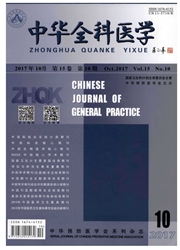

 中文摘要:
中文摘要:
目的对上海某社区不同健康水平居民就医行为和影响因素分析,了解居民的医疗需求,指导医院提供满足社区居民需要的卫生服务。方法采用自行编制的调查问卷,内容包含有居民性别、年龄、文化程度及居民对自身健康状况的评价等问题,以及在身体不适时的行为、选择医疗机构的依据、行为和影响因素。由经过培训的医护人员,在社区居委的协助下进行发放、填写。结果健康状况很好和较好的居民在身体出现不适时选择休息及自服药的比例高于健康状况差和较差者;健康状况差和较差的居民选择综合性医院就医的比例高于其他组的居民;健康状况差的居民考虑医疗费用的比例高于其他组。不选择社区医院的原因中技术不够、设备落后、没有药品各组存在差异,健康状况差的居民对设备落后、没有药品因素要求高。结论居民就医行为受个人健康状况影响。要重视健康状况不好居民的医疗行为和影响因素。要合理配制社区卫生服务资源,正确引导居民就医。
 英文摘要:
英文摘要:
Objective By researching the intention and factors for hospitalizing of community residents with different health level in Shanghai of China,this paper aims at acquiring the demands for medical care of residents,guiding the hospitals to satisfy the needs for medical services and providing the basis for improving hospitalizing behavior of residents. Methods The research was carried out on the basis of a self-made questionnaire, which included the following questions:gender, age, educational degree, self-evaluation on health condition,and the choice of hospital institution and the factors in case of sickness. Results More informants in good health condition choosed to rest or dosed themselves than those who were in intermediate or poor health condition. Informants in intermediate or poor health condition prefered superior hospital and gave more consideration to medical expense. There was specific variance among different health condition groups on the factors for choosing elementary hospital. Insufficient technique, obsolete equipments and short of medicine were all main factors for not choosing elementary hospital. Informants in poor health conditions paid more attention to obsolete equipments and short of medicine. Conclusion Hospitalizing behavior of residents was affected by age, educational degree and personal health situation. More attention should be paid to those in poor health situation and their consideration.
 同期刊论文项目
同期刊论文项目
 同项目期刊论文
同项目期刊论文
 期刊信息
期刊信息
